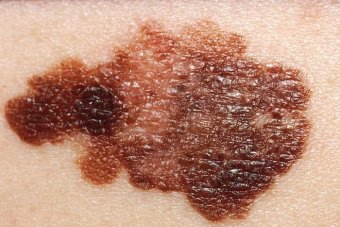
New Zealand has overtaken Australia as the world leader in invasive melanoma rates, Brisbane researchers have discovered.
A study from QIMR Berghofer Medical Research Institute has found the rates of Australia’s invasive melanoma — which had increased since the 1980s — are declining and predicted to keep falling over the next 15 years.
Photo: Australia’s melanoma rates are predicted to keep falling. (Wikimedia commons)
Invasive melanoma is the deadliest form of skin cancer, capable of spreading to other parts of the body.
The study showed New Zealand now had the highest rates of the skin cancer in the world, with the latest figures showing about 50 cases per 100,000 people.
Researchers compared the rates of melanoma in six populations over a 30-year period from 1982 to 2011.
The six populations were Australia, New Zealand, the United Kingdom, Norway, Sweden, and the Caucasian population of the United States.
The researchers found that invasive melanoma rates in Australia increased from about 30 cases per 100,000 people in 1982, and peaked at nearly 49 cases per 100,000 people in 2005.
The rates then declined to about 48 cases per 100,000 people in 2011.
Invasive melanoma rates in New Zealand reached about 50 cases per 100,000 people in 2011.
Professor David Whiteman, who led the study, attributed the falling rates to prevention campaigns run since the 1980s.
“Australians have become more ‘sun smart’ as they have become more aware of the dangers of melanoma and other skin cancers,” he said.
“Schools, workplaces and childcare centres have also introduced measures to decrease exposure to harmful UV radiation.
“Unfortunately, rates of melanoma are still increasing in people over the age of about 50.
“This is probably because many older people had already sustained sun damage before the prevention campaigns were introduced, and those melanomas are only appearing now, many decades after the cancer-causing exposure to sunlight occurred.”
Overall number of invasive melanomas still rising
However, the overall number of invasive melanomas diagnosed in Australia are still rising because of the ageing Australian population and overall population growth.
Professor Whiteman said diagnosis numbers in Australia were expected to increase from 11,162 cases per year from 2007-2011, to 12,283 cases per year from 2012-2016.
“The picture in Australia at the moment is mixed. While it’s good news that average melanoma rates have started to fall, the fact that the actual number of cases is still rising is bad news.”
Australia’s melanoma rates are predicted to keep falling to about 41 cases per 100,000 people in 2031.
New Zealand’s rates are expected to start declining from about 2017 onwards and reach approximately 46 cases per 100,000 people by 2031.
The study was published in The Journal of Investigative Dermatology.
